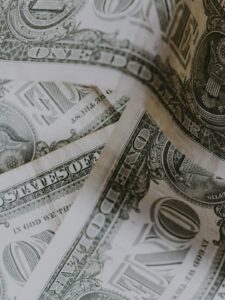Understanding Forex Account Opening Requirements and Regulations
The foreign exchange market, also known as forex, is the largest and most liquid financial market in the world. With trillions of dollars traded every day, it offers great opportunities for individuals and institutions to profit from currency fluctuations. However, before diving into the forex market, it is important to understand the account opening requirements and regulations.
Forex account opening requirements can vary depending on the country and the broker you choose. In general, there are a few key documents and information that you will need to provide when opening a forex account.
Firstly, you will typically need to provide a valid identification document such as a passport or driver’s license. This is to ensure that you are who you claim to be and to prevent fraud and money laundering. Some brokers may also require you to provide a proof of address, such as a utility bill or bank statement, to verify your residential address.
In addition to identification documents, you will also need to provide your financial information. This includes details about your income, employment status, and net worth. Brokers require this information to assess your financial situation and determine your suitability for forex trading. They may also ask you to provide your tax identification number or social security number for tax reporting purposes.
Once you have provided all the necessary documents and information, the broker will typically review your application and conduct a background check. This process may take a few days to a few weeks, depending on the broker and the country’s regulations. During this time, the broker may contact you for additional information or clarification.
Apart from the account opening requirements, it is essential to understand the regulations governing forex trading. Forex regulations aim to protect traders and ensure the integrity of the market. These regulations can vary significantly from one country to another, so it is crucial to be aware of the specific regulations in your jurisdiction.
In the United States, for example, forex trading is regulated by the Commodity Futures Trading Commission (CFTC) and the National Futures Association (NFA). Brokers operating in the US must be registered with the CFTC and become members of the NFA. They are required to meet strict financial requirements and adhere to stringent reporting and record-keeping obligations.
In Europe, forex trading is regulated by the European Securities and Markets Authority (ESMA) and individual country regulators such as the Financial Conduct Authority (FCA) in the United Kingdom. Brokers in Europe must be authorized and regulated by the relevant regulatory bodies and comply with a set of rules designed to protect investors.
It is important to note that forex regulations not only apply to brokers but also to traders. For example, in the US, individuals who meet certain income and net worth requirements can become accredited investors and have access to more flexible trading conditions. However, they are also subject to additional risks and regulations.
In addition to country-specific regulations, there are also international regulations and standards that apply to forex trading. One of the most notable is the Basel III framework, which sets out capital requirements for banks and financial institutions. These requirements aim to ensure that financial institutions have enough capital to withstand market shocks and protect traders and investors.
Understanding the account opening requirements and regulations is crucial for anyone interested in forex trading. By complying with these requirements and trading with regulated brokers, traders can ensure the safety of their funds and the integrity of the market. It is also important to stay updated with any changes in regulations as they can have a significant impact on trading conditions and strategies.
In conclusion, opening a forex account requires providing identification documents, financial information, and undergoing a background check. The specific requirements can vary depending on the country and the broker. Additionally, traders need to be aware of the regulations governing forex trading in their jurisdiction to ensure compliance and protect their interests. By understanding and adhering to these requirements and regulations, traders can participate in the forex market with confidence and peace of mind.





